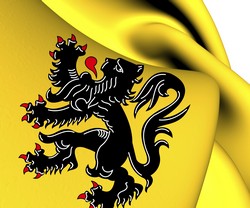Flanders attracts more international and experienced researchers
The project PEGASUS(opens in new window) (PEGASUS - Giving wings to the career of experienced researchers) supported efforts in Flanders to attract talented and experienced researchers from abroad. The main aim was to realise effective knowledge transfer between incoming fellows and resident researchers and create future opportunities for networking and professional development. The programme was designed to offer incoming fellowships. A Marie Skłodowska-Curie Action (MSCA), the PEGASUS programme offered a 1-year incoming fellowship scheme, which replaced the former FWO visiting postdoctoral fellowship programme. The 3-year incoming fellowship scheme extended the existing FWO fellowship programme that aimed to increase the number of international fellows in Flanders. ERs of any nationality and scientific background were eligible to apply. A total of 6 calls were launched and evaluated, attracting 711 applications and resulting in 91 grants being awarded (30 % female). Selected fellows represented 31 different nationalities (including 14 non-EU countries) and project proposals spanned the full range of research domains. The grant supported employment at five main host institutions in the Flemish Region: University of Leuven, Ghent University, University of Antwerp, Vrije Universiteit Brussel and Hasselt University. Immersed in a highly qualified research environment, fellows improved their research-specific and transferable skills. Through the programme, they acquired new methods and techniques, engaged with group members and received mentoring. The support was conducive to developing independent research, collaborating with field experts and establishing networks with Flemish scholars and institutions. Two surveys conducted during the PEGASUS mandate indicated a high overall level of satisfaction with the programme and positive impact on fellows' career perspectives, research capabilities and networks. The results also highlighted the programme's contribution to increasing the visibility and international character of research in Flanders. The [PEGASUS]2 project has since been launched under the Horizon 2020 MSCA programme. This follow-on project was established to offer both incoming and outgoing fellowships to further stimulate international mobility. PEGASUS succeeded in establishing a transnational mindset, helping researchers overcome regional and national boundaries. The efforts therefore also represent a significant contribution to the vision of the European Research Area.



